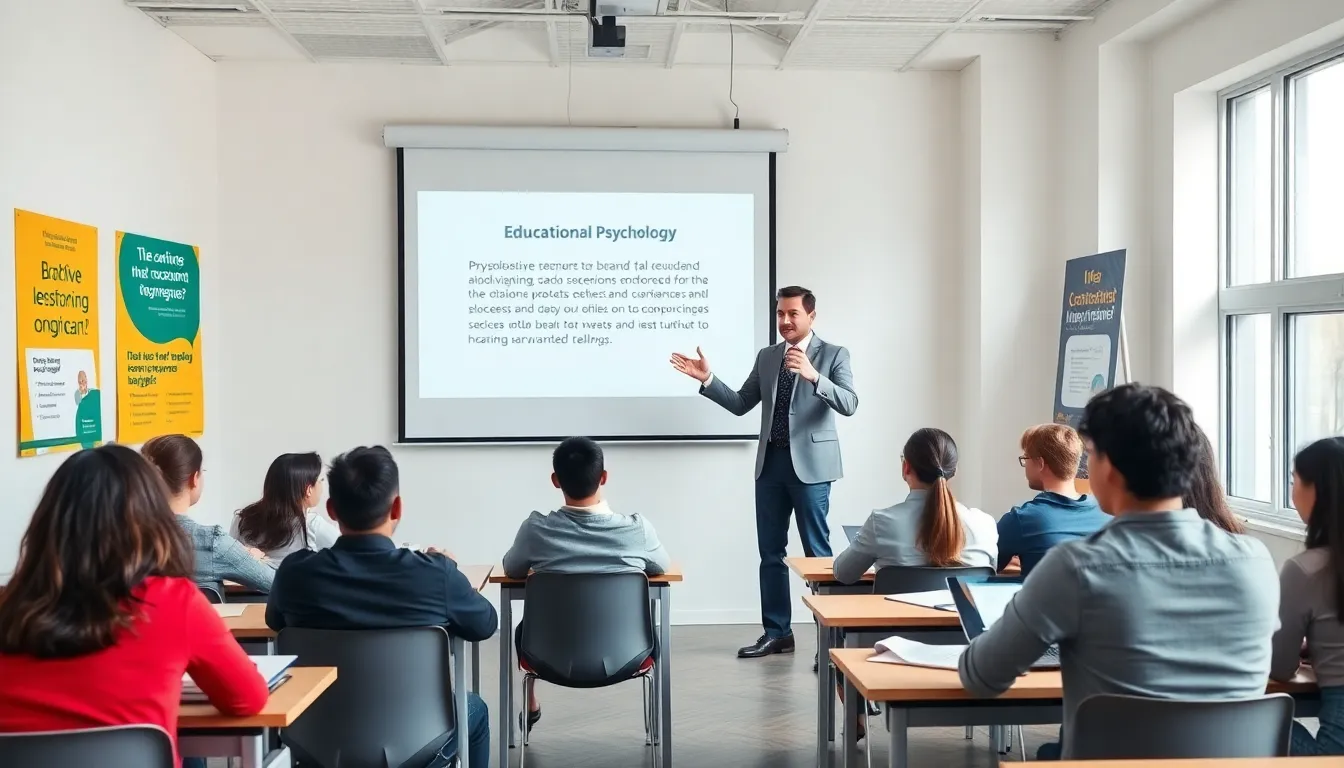Table of Contents
ToggleThinking about diving deep into the realm of minds and learning? A PhD in Educational Psychology might just be your golden ticket. Think of it not just as a degree, but as an all-access pass to understanding how students think, learn, and grow. Imagine deciphering complex learning behaviors while sipping coffee in your cozy study. Fulfilling, right? Let’s embark on this journey into educational psychology, where the theories and practices can dramatically change the landscape of teaching and learning. Ready to get enlightened?
What Is Educational Psychology?

Educational psychology is a field that focuses on understanding how people learn and the best practices to help that learning. At its core, it examines the cognitive, emotional, and social factors influencing educational processes. This branch of psychology interweaves theories of human development, motivation, and behavior in a context that supports education.
Imagine a puzzle maker who meticulously puts together pieces to form a cohesive picture: that’s what educational psychologists do. They assemble knowledge from various psychological theories to address how students acquire knowledge and the effective methods to enhance their educational experiences. This means studying everything from instructional strategies, student engagement, to learning environments that can affect performance and success.
Importance Of Educational Psychology
The significance of educational psychology goes beyond the classroom. It plays a critical role in developing effective curricula and teaching methods that resonate with diverse learners. Here’s why it matters:
- Support Diversity in Learning: Recognizing that no two learners are alike, educational psychology helps develop strategies tailored to various learning styles.
- Improve Educational Outcomes: By understanding the principles of motivation, educational psychologists can help create environments that bolster student engagement and success.
- Enhance Teacher Effectiveness: Training educators to understand psychological concepts can lead to innovative teaching methods. Teachers equipped with this training can create more inclusive and engaging learning environments.
Program Structure And Curriculum
Pursuing a PhD in Educational Psychology typically involves a comprehensive program structure designed to foster critical thinking and research skills. Here’s what students can usually expect:
- Core Courses: Subjects often include learning theories, developmental psychology, and research methods, offering students a foundation to build their expertise.
- Research Projects: Students engage in hands-on research, working under the guidance of experienced faculty to explore various aspects of educational psychology.
- Internships/Practicums: Many programs include practical experiences where students apply their knowledge in real-world educational settings, enhancing their learning and professional networking.
- Dissertation: A significant part of the PhD journey involves conducting original research that contributes to the field, culminating in a dissertation defense.
Career Opportunities With A PhD In Educational Psychology
Graduating with a PhD in Educational Psychology opens up an array of career opportunities:
- Academic Positions: Many graduates find roles in universities as professors or researchers, sharing their insights while shaping future educators.
- Consultants: Offering expert advice to educational institutions on curriculum design and student interventions.
- Government and Policy Makers: Working with educational authorities to influence policy based on research findings.
- Corporate Training and Development: Designing training programs for employees using principles of learning and motivation.
Admission Requirements And Application Process
Admitting into a PhD program in Educational Psychology involves several standard steps. Prospective students typically need to fulfill these criteria:
- Bachelor’s and Master’s Degrees: Most programs require applicants to hold relevant degrees, often leaning toward psychology, education, or related fields.
- GRE Scores: While some institutions have waived this requirement, competitive scores can enhance an application.
- Letters of Recommendation: Insightful recommendations from previous educators or employers can significantly boost an application.
- Personal Statement: A compelling narrative outlining one’s motivations, research interests, and career aspirations can set an application apart.
Once materials are submitted, candidates often go through an interview process, allowing faculty to gauge alignment with the program and its offerings.
Funding And Financial Aid Options
Pursuing a PhD is a substantial commitment, both in time and finances. Fortunately, numerous funding options are available:
- Assistantships: Many universities offer teaching or research assistantships that provide stipends in exchange for work.
- Scholarships and Grants: Aspiring students should explore university-specific scholarships as well as national and international grants for educational research.
- Federal Aid: Programs like the FAFSA can help students access federal loans or work-study options.
- Employer Reimbursement: Some companies will reimburse tuition fees for employees seeking advanced education related to their field.







